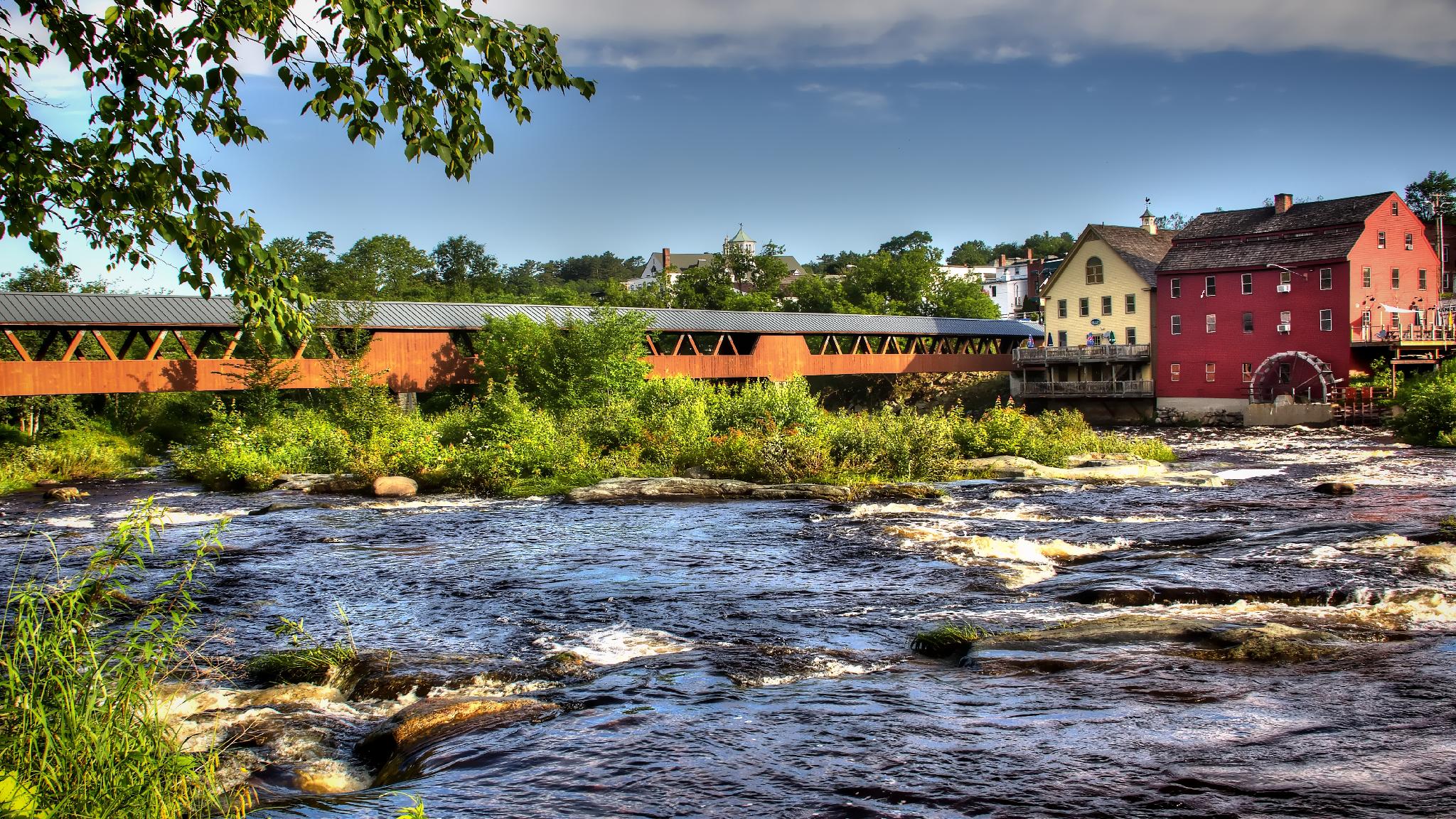New Hampshire Drug and Alcohol Treatment Centers
New Hampshire’s drug and alcohol abuse rates are consistently among the highest in the country. Opioids such as fentanyl, heroin, and prescription opioids form the largest drug threat in New Hampshire. In 2017, more than 80% of all New Hampshire treatment centers admissions were related to one or more of these three drugs.
Since 2002, the rates of alcohol dependency in New Hampshire have also been among the highest in the country. More than 60% of the population admits to drinking alcohol and 5% of those are alcohol addicted. In 2015, almost 15% of residents were admitted to treatment centers for alcohol abuse. The number of people admitted to rehab was at an all-time high in that year.
Where are Drug Treatment Centers in New Hampshire?
Thousands of treatment facilities throughout the U.S. are dedicated to starting addicts on the road to recovery. The experience of one treatment seeker will differ markedly from that of another. We’re here to help New Hampshire residents. Discover a facility in our list below that fits your needs, or contact us for individual recommendations.
Cities with the Most Facilities
New Hampshire‘s Need To Know
We’re here to educate you on the New Hampshire challenges, there are a lot of facts but we’ve made a short list of the most impactful data we discovered.
- Cocaine is the drug most associated with violent crimes in New Hampshire.
- ~15% of all teenagers between the age of 12 and 17 are actively drinking alcohol.
- Over 10% of all those between the ages of 18 and 25 years old admit to being dependent on prescription drugs.
- Over 19.5% of New Hampshire residents uses one or more illicit drugs.
- 18.61% of all deaths are caused by alcohol and/or drugs–almost six full points above the national average of 12.71%.
You’re not in this alone, call an admissions expert.
Drug abuse and trafficking in New Hampshire is a huge issue and one that can not be ignored. Substance violence destroys families, friendships and partnerships.
Free + Confidential Test Consultation
Cheshire Medical Center
Cheshire Medical Center in Keene, New Hampshire is a renowned nonprofit hospital that provides a wide range of healthcare services, including specialized programs for substance abuse and addiction treatment.
Tri County Community Action - North Conway is a drug rehab located in North Conway, New Hampshire which offers outpatient and intensive outpatient care for adults with substance abuse and alcohol or opioid addiction, taking private health insurance.
Pond Place East is a comprehensive outpatient treatment center in Concord, NH, providing personalized addiction and substance abuse treatment incorporating evidence-based practices and holistic strategies, specialized expertise in addiction, mental health services, and trauma-informed care, and adherence to the highest quality standards in healthcare.
Tryba Solveig Psychotherapist
The Tryba Solveig Psychotherapist Drug Rehab provides inpatient care for individuals with substance use disorders and other addictive behaviors, offering detoxification and rehabilitation services by a qualified and experienced staff.
Delta Counseling Consultants
Delta Counseling Consultants is a comprehensive Addiction Treatment Facility in Plymouth, NH offering a variety of tailored care plans to help individuals overcome addiction, develop coping skills and prevent relapse.
Tri County Community Action - Berlin
Tri County Community Action - Berlin is a Drug Rehab Facility in Berlin, NH that provides treatment for Alcoholism, Opioid Addiction, Substance Abuse, and Drug Addiction in various levels of care.
Otter Brook Center
Otter Brook Center is a drug and alcohol rehab facility in Keene, NH, offering comprehensive care, individualized treatment plans, and evidence-based methods for long-term recovery, along with around-the-clock medical and mental health care, group and holistic therapies, nutrition education, and individual and family counseling.
WestBridge - Chestnut Street
WestBridge - Chestnut Street is an Addiction Treatment Facility in Manchester, NH offering comprehensive services including detoxification, inpatient care, dual diagnosis treatment, and aftercare planning to assist individuals in their journey towards sobriety.
Nashua Children's Home
Nashua Children's Home is a licensed and accredited facility that offers a variety of evidence-based and holistic treatment programs for children and adolescents struggling with addiction, substance abuse, and co-occurring mental health disorders.
Nashua Children's Association
Nashua Children's Association is a non-profit organization that offers mental health counseling, substance abuse treatment, prevention services, crisis services and interventions, detoxification, inpatient and outpatient treatment, residential programs, family therapy, individual counseling, and support and education programs for those affected by substance abuse.
Browse Specific New Hampshire Cities
Currently, there are over 195 different centers in our facility directory within the state of New Hampshire for people needing help with drug and alcohol addiction, please select your city below.
New Hampshire Cities with Most Centers
- Manchester, NH (37)
- Nashua, NH (18)
- Concord, NH (13)
- Keene, NH (13)
- Lebanon, NH (9)
- Plymouth, NH (7)
- Portsmouth, NH (6)
- Laconia, NH (6)
The Impact of Addiction in New Hampshire

New Hampshire is small but well above its weight, with beautiful scenery and cosmopolitan towns. The long-distance Appalachian Trail passes through the county, and there are 1,900 km of hiking trails. Find your Zen on the water with a stand-up paddleboarding yoga lesson at Lake Winnipesaukee. Hampton Beach offers old-school seaside entertainment with its sweeping waves.
New Hampshire’s drug and alcohol abuse rates are consistently among the highest in the country. Both illicit and prescription drugs are widely abused throughout the Granite State. In 2008, New Hampshire ranked first in the nation for illicit drug use–and from 2010 to 2015, the state ranked third for drug overdoses. The number of overdoses spiked to 495 cases in 2016, which caused the state to rank second in the United States.
There is definitely a lot to love about New Hampshire, but drug addiction and alcohol misuse plague some places.
Opioids such as fentanyl, heroin, and prescription opioids form the largest drug threat in New Hampshire. The state ranks second in the nation for opioid-related overdoses and first for fentanyl-related deaths. In 2017 alone, more than 80% of all New Hampshire treatment centers admissions were related to one or more of these three drugs.
In addition to these troubling statistics, opioids are not the only problem in the state. Since 2002, the rates of alcohol dependency in New Hampshire have also been among the highest in the country. More than 60% of the population admits to drinking alcohol and 5% of those are alcohol addicted. Another 17% of adults in the state binge-drink regularly and 7% of the population are considered heavy drinkers.
Alcohol is not only problematic amongst adults in the state. Many minors in New Hampshire also actively drink alcohol. It is estimated that almost 15% of teenagers between 12 and 17 years old drink alcohol every month.
Many New Hampshire residents have gone to drug abuse treatment centers and this number seems to be growing every year. In 2015, almost 15% of the residents were admitted to treatment centers for alcohol abuse. In that same year, New Hampshire reached an all-time high for the number of people admitted to treatment centers in one day. In that single day, 8,164 residents were admitted to rehabilitation centers. Before this, the highest number was 6,702 people in 2013.
Worst Drugs in New Hampshire
- Cocaine is the drug most often associated with violent crimes in New Hampshire. In 2007, more than half of all drug offenses committed in the state were cocaine-related.
- Heroin abuse in New Hampshire is prevalent amongst young people. Those between the ages of 21 and 25 years old make up the largest group of those admitted to treatment centers for heroin abuse.
- Alcohol abuse in New Hampshire is also common among minors. Almost 15% of all teenagers between the age of 12 and 17 years old are actively drinking alcohol. In 2014, more than 7% of New Hampshire residents above the age of 12 were addicted to alcohol.
- While marijuana remains illegal in New Hampshire, 30% of residents between the ages of 18 and 25 years old make regular use of this illicit drug. From 2014 to 2015, 9% of the total New Hampshire teen population used marijuana.
- Prescription opioid abuse and dependency are common in New Hampshire. Slightly over 10% of all those between the ages of 18 and 25 years old admit to being dependent on prescription drugs. In the past two years, prescription drug-related overdoses increased by 100%.
Impactful Addiction Stats
- Over 10% of minors in New Hampshire begin drinking before they turn 13 years old.
- In 2015 alone, more than a quarter of the total New Hampshire population was admitted into substance abuse treatment centers.
- Almost half of all those who are federally sentenced in New Hampshire are sentenced because of drug-related offenses.
- Between 2005 and 2006, New Hampshire ranked amongst the top for past-year drug dependency in two age groups: those between 12 and 17 years old as well as those between 18 and 25 years old.
- In New Hampshire, 18.61% of all deaths are caused by alcohol and/or drugs–almost six full points above the national average of 12.71%.
- Between 2010 and 2015, fentanyl-related deaths in New Hampshire increased by more than 1,600%.
- More than 19.5% of the New Hampshire population uses one or more illicit drugs. This number does not include those that illegally purchase and use prescription drugs.
- In 2007, more than 2,500 people in New Hampshire were brought into the Emergency Room for opioid-related causes.
- Over a quarter of all drug treatment admissions in New Hampshire are opioid-related.
- Every year, New Hampshire sees almost 500 drug-related overdoses.
Still Need Help Finding Treatment?
Whether you are looking for alcohol or the treatment of substance addiction in New Hampshire, you are in the right place. This at first seems like a daunting challenge: to figure out the program that is most detailed and specific. The right support journey can be a stressful and daunting experience for yourself or a loved one. We alleviate these barriers by working to help you find the best recovery services in New Hampshire. We know that making the decision sober is extremely difficult. With our supportive and caring experts, we make the rest as easy as possible. RehabNow.org will help you select the right choice for you or your beloved friend.
Health Insurance Providers Covering Drug Addiction Treatment
- Harvard Pilgrim Health Care
- Ambetter for NH Healthy Families
- Anthem Blue Cross Blue Shield of New Hampshire
State Specific Hotlines & Resources
- DHHS Statewide Addiction Crisis. This hotline provides information and resources on all types of substance abuse: 1-844-11-4357.
- 2-1-1 NH. A 24/7 free addiction recovery hotline offering support and information on drug recovery and treatment: 2-1-1.

